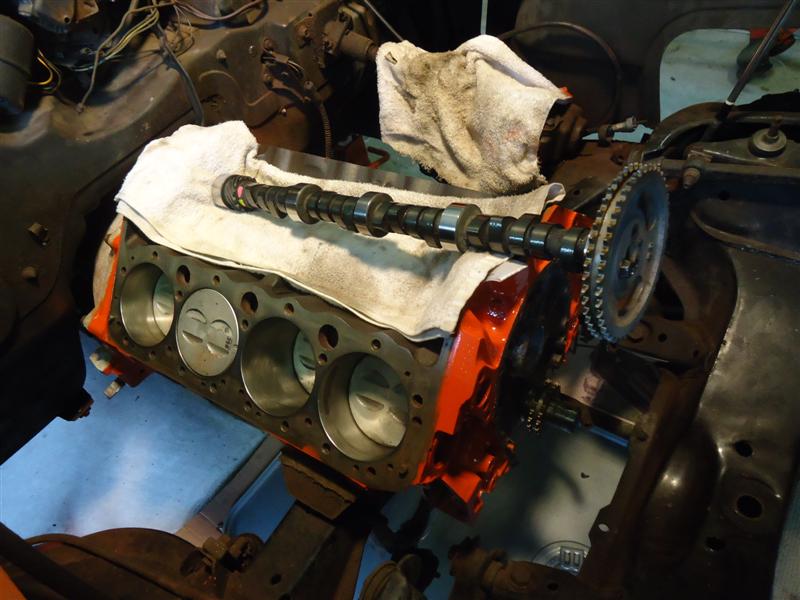Old School Small-Block Chevy Build
Article by Vintage Vinnie
The small-block Chevy V8 is now 70 years old, and early Gen-One engines are becoming increasingly sought after by restorers and hot rodders alike.
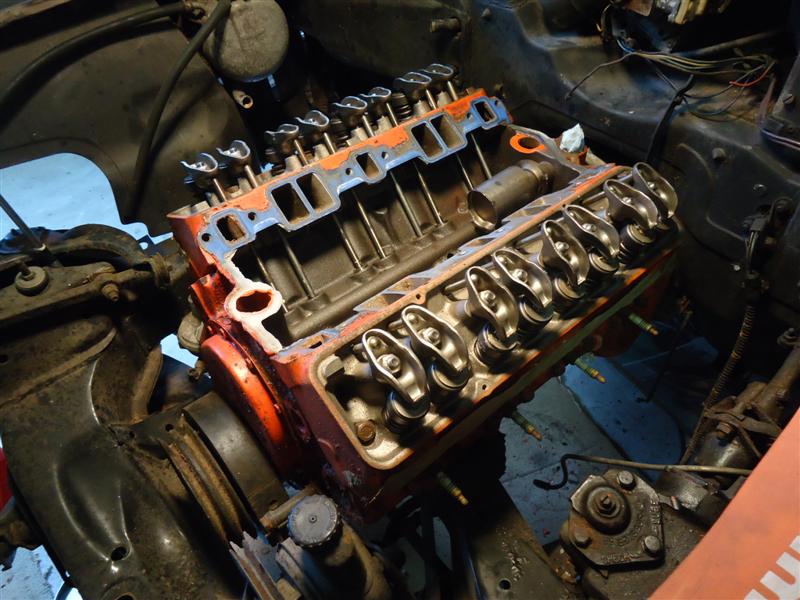
So, what exactly is an old school Chevy V8? If you're looking to build an authentic vintage small-block Chevy, you'll have to start with a draft tube engine block.
What's a Draft Tube?
Many vintage engines, including early Chevy small-blocks, had no PCV (positive crankcase ventilation) system. Instead, there was a draft tube canister, under the intake manifold, at the back of the block. I've heard some people refer to the canister as a baffle.
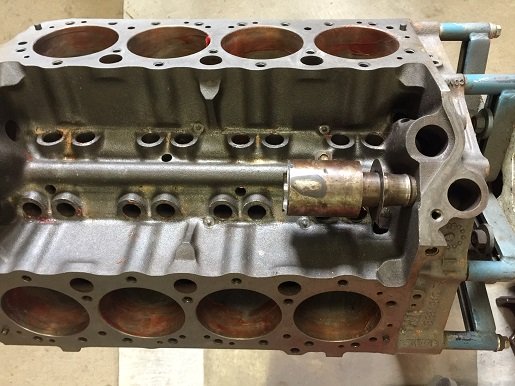
A metal 'road draft' tube ran from the canister down to the back of the engine. I had one of these on my old '60 Belair with a 283, but quite often they were taken off and discarded.
Road draft tubes were fitted to 1955 through 1968 Chevy V8 engines. These would include 265, 283, and 327 motors. Some early 307 and 350 motors may also have one.
Having no PCV system, draft tube motors "breathe" through the oil breather cap, which is located on the oil filler tube in front of the intake manifold.
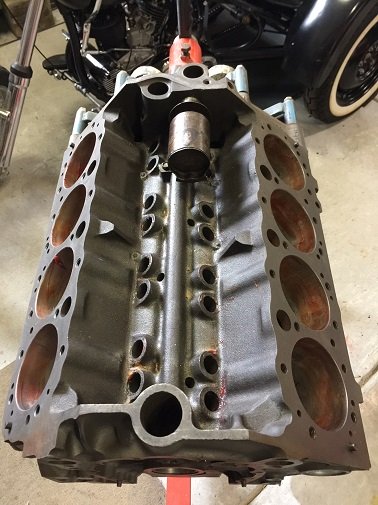
Cylinder Heads
Pre-1969 SBC cylinder heads are made of cast iron and have no accessory mounting holes, but if you're building a retro hot rod, you probably don't need or care about power steering or air conditioning anyway.
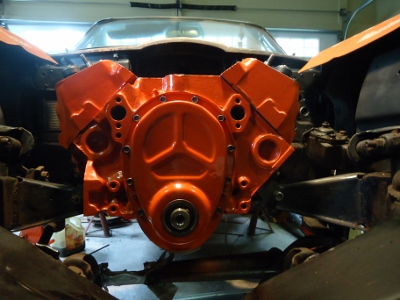
Early SBC Intake Manifolds
There are plenty of aftermarket performance manifolds that will bolt on to an early SBC motor. But for the most authentic look on a vintage small-block, look for a non-EGR version.
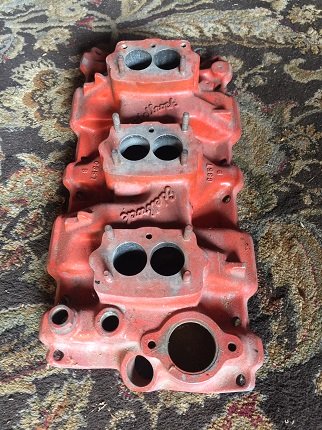
Note the oil-filler tube hole on the front of this Edelbrock three-two barrel manifold. Unlike Pontiac Tri-power Carbs, any Rochester two-barrel can be made to work on these.
Spin-on vs Canister Oil Filter
Early SBC's had a canister (cartridge) oil filter. Truth is, they work better than spin-on filters, and of course, they're old school.
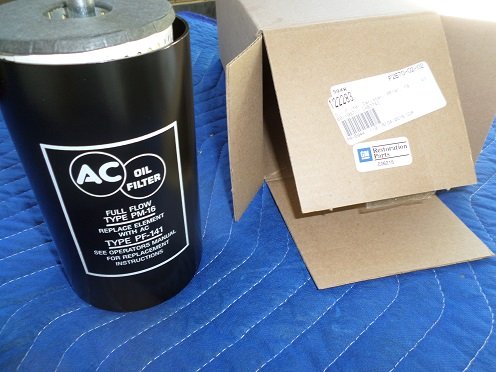
Spin-on filters were first seen on small-blocks with the introduction of the 350 motor in 1967. The first year Corvette to have one was 1968.
A common 'upgrade' in the seventies was to buy an aftermarket conversion kit and replace the original canister filter with a spin-on. Unfortunately, many of these kits were cheap imports and prone to leaking and breakage.
SBC Valve Cover Differences
Up until the late sixties, small block valve covers, like these 1966 Corvette "script" valve covers, had no holes for breather caps or PCV valves.
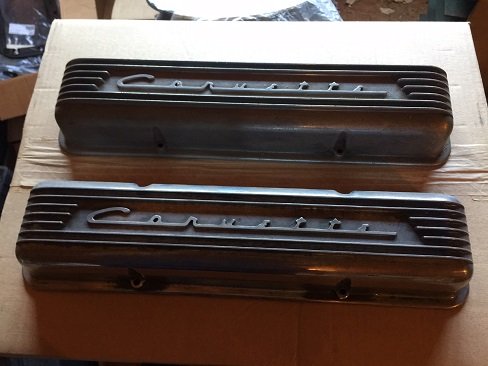
Pre-PCV engines run a little dirtier emission-wise than later motors, but will allow you to run those cool old valve covers without cutting them up.
Chrome vs Polished
A vintage American V8 should not be hidden under Chinese aftermarket parts like chrome valve covers and timing chain cover.
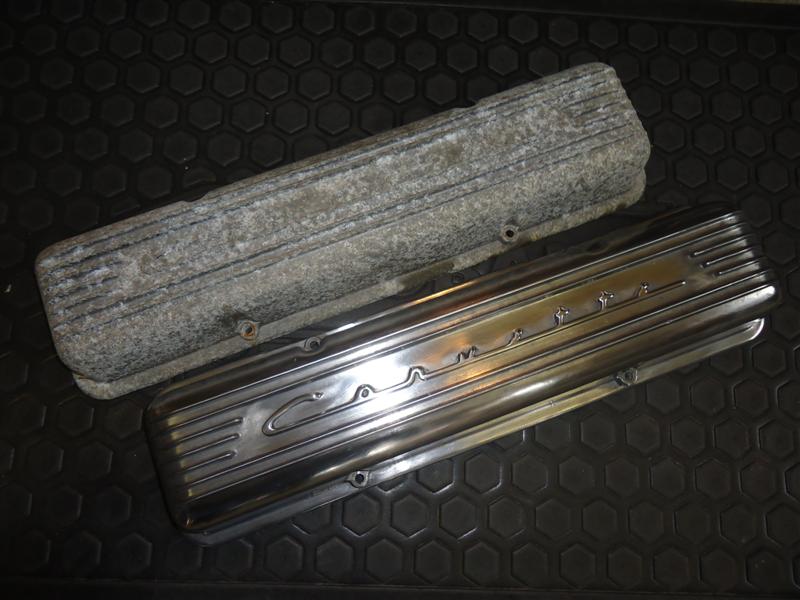
We all know that chrome plating holds in engine heat. As an alternative, consider polishing engine parts.
SBC Timing Chain Covers
Before you buy an aftermarket chrome timing chain cover to put on your American hot rod, consider re-using the stock piece. The quality of metal is far superior, which means it's thicker and will not be as noisy.
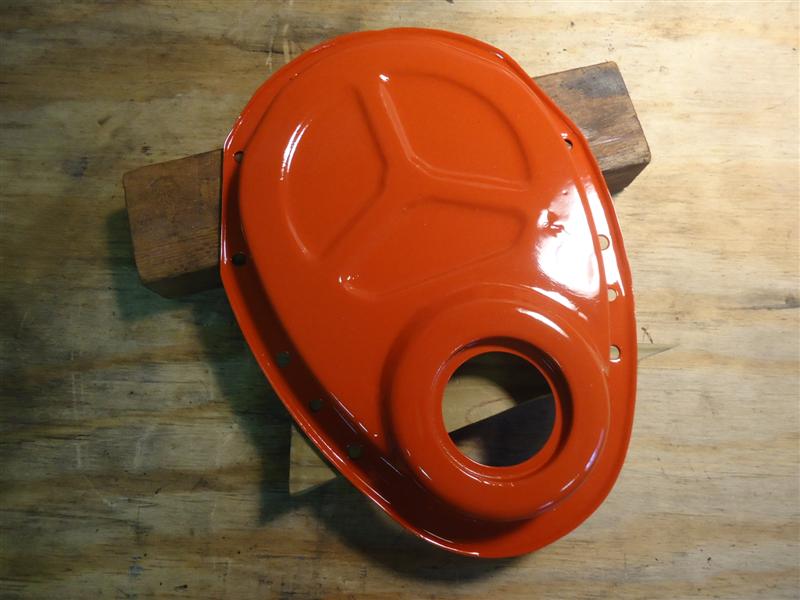
Read: SBC Timing Chain, Gears, and Covers
Points vs HEI ignition
When in proper working order, a points ignition system works very well and should give 10,000 to 15,000 miles of service. For a classic car that gets driven a 1,000 miles a year, that's a pretty trouble-free system. Yet, some owners choose to convert to electronic ignition system.
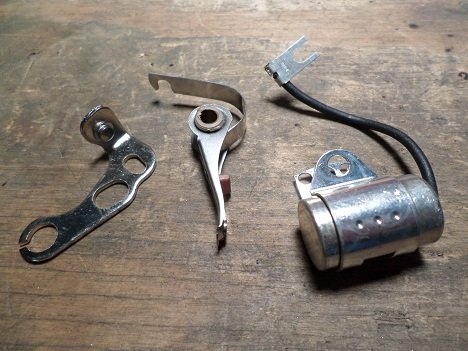
Read: Points vs Electronic Ignition
Conclusion
If you're only after speed and horsepower, you'll be happier with a Gen-Two or Gen-Three Chevy V8. But for a nostalgic look on an old-school hot rod, you can't beat a pre-PCV small-block Chevy.
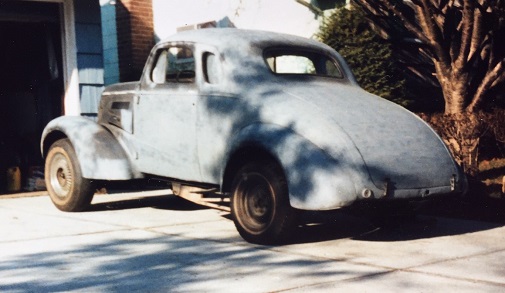
Misc Notes
There's plenty of Gen-One SBC's out there, but because of their age and unknown history, have the block gone over by a qualified machine shop before you start building one. Aside from visual defects and cracks, you'll want to check the diameter and ovality of all eight bores.
*******************************
Related Articles:
How To Polish Aluminum Engine Parts
Best Engine Assembly Lube
Tools Needed For An Engine Build
Clean and Tap Bolt Threads
Spray Paint Engine Block
Chevy Small-Block History 1955-1959
Chevy Small-Block History 1960-1964
SBC Timing Chain, Gears, and Covers
